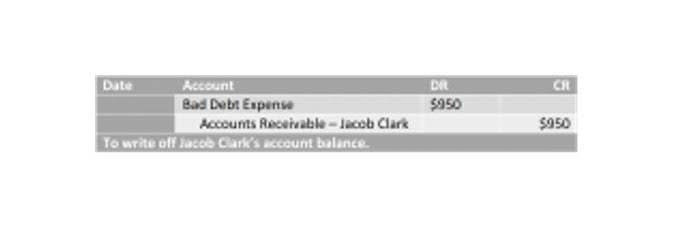Backstage & Influences

Learn about bookkeeping, typical responsibilities, how to become a bookkeeper, and remote bookkeeping opportunities with Intuit’s QuickBooks Live in the U.S. Some people take bookkeeping roles to gain practical training for a career in accounting or auditing. However, the role also offers long-term stability for those considering it as a dedicated career path. After my role as a staff accountant, I moved to a financial analyst position and then to a controller position, all at larger publicly traded companies.

Our cloud-based bookkeeping software solution is quick, efficient, and capable of saving you countless hours of administrative work. If you’re interested in an analytical, business-minded career, becoming a bookkeeper (especially a virtual bookkeeper) might be the right choice. And with no requirements for special certification and education, there are almost no downsides to seeing if it’s a good fit. These exams test your knowledge of analyzing business transactions, payroll taxes, financial statements, and more. You can take this exam from anywhere, as long as you have a reliable internet connection.
Intuit Talent Acquisition
You must pay for each part of the required exam, along with any preparation courses you may take. As noted above, NACPB and AIPB both require annual fees as well to keep members’ credentials current. Therefore, the length of the Program is determined by the time you dedicate to the Program and your understanding of bookkeeping, payroll, and accounting.
One organization to look into is The American Institute of Professional Bookkeepers. They provide bookkeeping certifications and training, which can officially make you a Certified Bookkeeper. Once you’ve had some bookkeeping training, you’re ready for real-world bookkeeping jobs or experience. It’s completely possible to become a skilled and successful freelance bookkeeper without the need for a specialized degree or lengthy certification. While more education is always a bonus, many successful freelance bookkeepers start right out of secondary school. A bookkeeper certification tells employers that you have all the skills and expertise required for advanced bookkeeping.
How to Become a Certified Bookkeeper
Earning a bookkeeping certification involves weeks of studying, hours of test preparation and a significant financial investment. Additionally, maintaining a bookkeeping certification from NACPB or AIPB requires continuing professional development. Both AIPB and NACPB require previous bookkeeping experience to qualify for their courses.
- Most bookkeepers hold high school diplomas and have completed postsecondary courses in relevant subjects, like accounting.
- These will help prove your expertise in specific bookkeeping and accounting software to clients.
- This is a self-paced program that requires discipline to study and learn the course material on your own.
- She brings a wealth of experience in both running her own and managing businesses within different sectors, working in the UK and internationally.
- If you work in a competitive job market, certification can give you a leg up when discussing salary potential with prospective employers.
In this section, we’ll cover two primary bookkeeping certifications and two popular bookkeeping certificates. Additionally, the options outlined in the table below can be completed online, and many are self-paced, meaning you can work on them around your other responsibilities. Discover more about bookkeeping certifications and bookkeeping certificates, and learn about choosing the best option for your goals. Bookkeeping doesn’t require certification to practice, meaning you can teach yourself and start right away if you’re confident. However, more knowledge is always an asset, and a bookkeeping certificate can make your resume look more attractive, potentially helping you to gain clients. Although you don’t need a bachelor’s degree, it can make you more competitive.
What jobs can you get with a bookkeeping certificate?
Once you’ve chosen a program, complete the coursework or training material. Be sure to allow enough time in your schedule to learn the skills your certification or certificate program measures, and be mindful of any deadlines by which you must take a certifying exam. Once you’ve identified what matters most out of a bookkeeping certification program or a bookkeeping certificate, start researching which options align most closely with your priorities.
- Make sure to bring proper identification and any required materials on exam day.
- In that case, whether you’re a freelance bookkeeper with several clients or simply looking to handle the bookkeeping for your own business, FreshBooks can help.
- Some people take bookkeeping roles to gain practical training for a career in accounting or auditing.
- Additionally, your employer might be inclined to promote and offer higher salaries to certified bookkeepers.
- However, bookkeepers need more work experience for CB certification than they do for CPB licensing.
While the US Bureau of Labor Statistics (BLS) projects that bookkeeping jobs will decline by five percent between now and 2031, the agency still anticipates around 197,000 openings for bookkeepers each year [1]. According to Payscale, people in the US with a bookkeeping certification can earn, on average, $55,000 per year [2]. These often take a few weeks to a few months to complete, and cover fundamental knowledge and skills so you can get started in the field. They typically manage a company’s financial accounts and maintain accurate records.
Get the recognition you deserve as a professional —and keep your skills, knowledge—and marketability—up to date!
A certified bookkeeper is someone who has demonstrated that they have the knowledge, skills, and work experience to perform the duties required of a bookkeeper. Clients often look at certifications to verify a level of experience qualified bookkeeper and expertise when selecting a bookkeeper. Candidates looking at how to be a bookkeeper without a degree can follow several paths. Enrolling in a certificate or degree program offers an education-based option.
- Janet was appointed CEO of the IAB and its affiliated body the IAAP (International Association of Accounting Professionals) in 2018.
- Be sure to allow enough time in your schedule to learn the skills your certification or certificate program measures, and be mindful of any deadlines by which you must take a certifying exam.
- NACPB estimates seven to 13 weeks per class, but you may finish earlier if you dedicate more time to studying.
- Another difference to note between the CPB and CB credentials is cost.
- Janet has a deep understanding of the needs of bookkeepers as well as the pressures brought by their clients.
- She qualified as a bookkeeper and established her own practice, ‘Women Who Count Ltd’ in 2009.
Next Post : Sign in to Access Your Intuit Products Account
-
Search